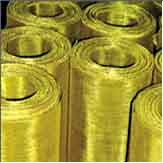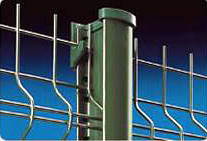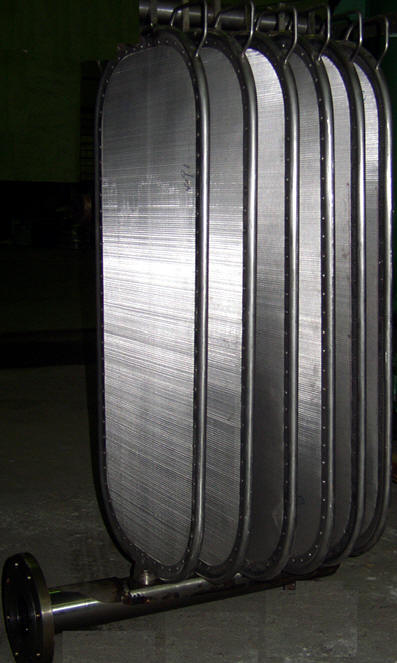|
|
We offer wire mesh products in full rolls, cut to size pieces, slitting,
circle cutting, blanking, and stamping.
We provide a full spectrum of wire related products that include but are
not limited to:
-
Metal wires for weaving and binding
-
Wire mesh for major industrial use
-
Wire mesh containers, shelves, shopping trolleys, baking grating and
other items for daily use and commercial use
We support our customers with services ranging from high quality wire
materials, wire mesh weaving and processing, designing of custom wire mesh
developed products, prompt response and delivery. Our wire mesh inventory is
constantly evolving and expanding everyday to meet the changing needs of our
customers around the world. Contact one of our experienced sales staff to
discuss how we can work together to meet your needs.
You have many choices for your woven wire mesh regarding the
materials, weave and futures. You also can provide us your specifications -
we will make it for you.
Steel
: Wire
cloth is often woven from steel due to its relatively low cost, high tensile
strength, and ductility. Low carbon steel is often the choice when the
cloth will not be in contact with corrosive or abrasive fluids. Steel may
be galvanized, tinned, plated, painted or coated.
Nickel Based Alloy: Nickel is used in
wire cloth
because of its corrosion resistant properties. A passive oxide film forms
over the nickel for protection in oxidizing environments. Nickel may
be replaced with stainless steel for cost savings.
Aluminum: A bluish
silver-white malleable ductile light trivalent metallic element that has
good electrical and thermal conductivity, high reflectivity, and resistance
to oxidation.
Brass: Brass comes with
good strength, excellent high temperature ductility and reasonable cold
ductility, good conductivity, excellent corrosion resistance, good bearing
properties and low magnetic permeability.
Copper: A common reddish
metallic element that is ductile and malleable and is one of the best
conductors of heat and electricity.
Bronze: Sintered bronze
is a porous material, which can be impregnated with oil, graphite or PTFE.
Not suitable for heavily loaded applications but useful where lubrication is
inconvenient.
Titanium: Titanium and its
alloys are extremely lightweight and are widely used in the aircraft and
aerospace industry. It has an excellent high strength-to-weight ratio
especially in moderate temperature ranges (300°F to 700°F). In natural
environments, a protective oxide film forms which enhances its corrosion
resistance. Titanium
wire cloth is
also used in medical applications for implants in artificial joints.
Molybdenum: This alloy offers
excellent corrosion resistance properties, and, in a protective environment,
it exhibits useful properties at temperatures up to 3200°F. It has a low
coefficient of expansion and excellent high temperature strength.
Tantalum: Of all the
refractory metals, this metal behaves much like glass in that it has almost
complete immunity to corrosion or chemical attack. Unlike glass it is
strong, ductile and malleable. Tantalum is compatible with body tissue,
making it ideal for surgical implants. It is easily spot-welded but cannot
be soldered successfully.
Tungsten: This refractory
metal has good strength in a protective atmosphere up to 5000°F. As is true
with other refractory metals, Tungsten exhibits good corrosion resistance
qualities.
Specialty / Other: Other unlisted,
specialized, or proprietary material.
Your
choices are...
Specialty / Other: Other unlisted,
specialized, or proprietary common weave.
Your
choices are...
Full Rolls:
supplied as full rolls.
Sheets / Cut Shapes: supplied in sheets or
cut shapes.
Rectangular Openings: Rectangular
openings are often referred to as slotted openings. When specifying
rectangular openings, you must specify the opening length, width, and the
direction of the long way of the opening.
Calendered:
Wire cloth
that has passed
through a pair of heavy rollers to reduce the thickness of the fabric, or to
flatten the intersection to provide a smooth surface.
Selvaged: The
edge or border of
wire cloth,
finished to prevent unraveling (versus a raw or cut edge). Types of selvage
edges include looped, folded, welded and fine mesh border pattern.
   
Email: info@skymeshgroup.com
Fax: 905 6288140
|